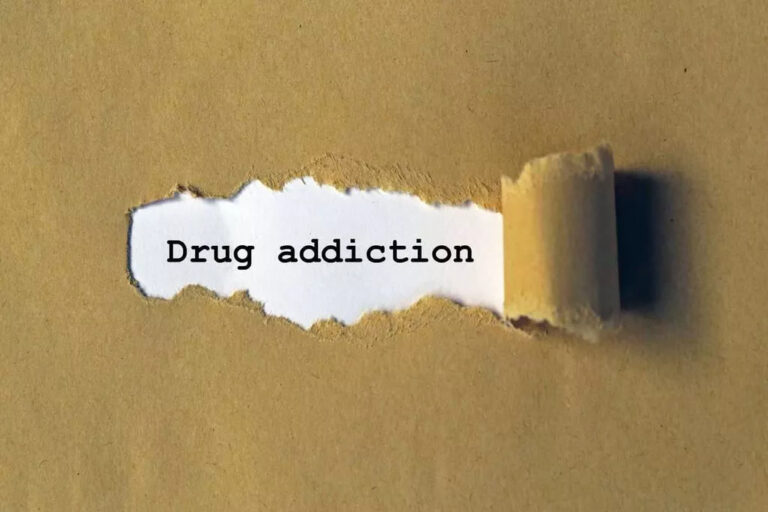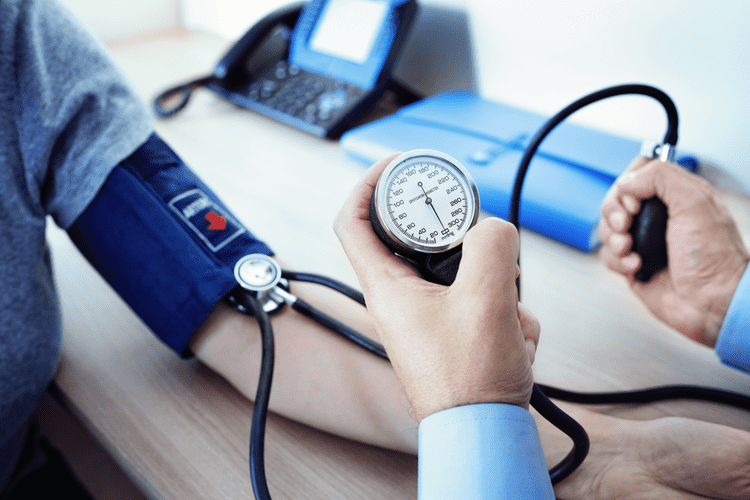Contents

It wasn’t long before smartphone apps began popping up that let homebound customers order their favorite beverages from their local haunts, too. Indeed, online sales increased 262 percent from March 2019 to March 2020, according to Nielsen’s market data. Thanks for listening to this episode of the best health podcast brought to you by wake forest Baptist health.

Setting a nighttime routine to promote better sleep gives your body time to truly rest and heal. Catherine Murtagh-Schaffer, PA, is a cardiothoracic physician assistant. She serves as the program lead for the opioid disorder treatment and substance abuse response team. The increase in consumption of alcohol across the globe prompted the World Health Organization to warn that alcohol use during the pandemic could worsen health concerns and risk-taking behaviors.
- Response to different stressors is mediated by several neural circuits that converge on the paraventricular nucleus of the hypothalamus (Myers, McKlveen et al. 2014).
- The adaptive immune system can be subdivided into cell-mediated immunity, carried out by T cells, and humoral immunity, carried out by B cells.
- However, overconsumption of alcohol can impair the function of the immune system and weaken it.
- Alcohol also reduces sleep quality, which increases a person’s chances of getting sick and recovering from illnesses.
Having a fully functioning immune system is crucial to successful chemotherapy treatment, so a person’s body may not handle or react to conventional chemotherapy as well if they drink alcohol. Alcohol consumption can allow thehepatitis virus to persistas a chronic condition, and alcohol use disorder combined with hepatitis often accelerates liver disease progression. When ALD reaches its final stage, known as alcoholic liver cirrhosis,the damage is irreversibleand leads to complications. The damage is irreversible because scar tissues build up and replace the liver’s regenerative cells, preventing the organ from healing.
Learn about the diseases caused by alcohol abuse, including the adverse impact it can have on your immune system. Drinking alcohol can impair phagocytes’ function, another type of scavenger cell critical in fighting viral and bacterial infections that affect your respiratory system. It can also damage the cells responsible for producing mucus to keep your respiratory system clean and free of debris. As with macrophages, excessive drinking can also lessen their effectiveness when it comes to removing excess tissue.
Part 3: How Can You Decrease Your Risk?
Acute high dose exposures inhibit whereas long-term treatments stimulate proinflammatory cytokine production. In addition, in vivo consumption of moderate amounts enhances phagocytosis and reduces inflammatory cytokine production whereas chronic consumption of large doses inhibits phagocytosis and production of growth factors. A second study by Joosten et al. also analyzed gene expression profiles in PBMCs isolated from 24 healthy male subjects who consumed 50mL of vodka with 200mL orange juice or only orange twice daily for 4 weeks during dinner . Pathways involving antigen presentation, B and T cell receptor signaling, and IL-15 signaling were altered with moderate vodka consumption (Joosten, van Erk et al. 2012).

It is also critical to take into consideration that the effects of ethanol on immune function in vivo could involve the actions of its primary metabolite, acetaldehyde. Therefore, more studies looking at the effects of ethanol metabolites in vivo are needed. Acetaldehyde has also been shown to affect NFκB-induced cytokine production in various liver cells. Finally, acetaldehyde disrupts intestinal epithelial barrier function and increases paracellular permeability which plays a crucial role in the pathogenesis of alcoholic liver disease by a tyrosine kinase-dependent mechanism (Sheth, Seth et al. 2004). Several lines of evidence suggest that alcohol consumption exerts a dose-dependent impact on the host response to infection. Chronic alcohol abuse leads to increased susceptibility to bacterial and viral infections, most notably a 3 to 7-fold increase in susceptibility and severity (Saitz, Ghali et al. 1997) of bacterial pneumonia compared with control subjects.
Part 2: COVID-19 and Alcoholism
One of the things that we had in a very limited sort of way up there, but we would do, you know, at that point, we didn’t even have Skype up there, but we were doing phone. Conferencing calls for AA meetings for people out in the villages that you know, couldn’t get in because you could only fly in and out. And, uh, one of the things that I wanted to give you was a definition, and this was just from Wikipedia, but as I was thinking about it, just thinking about what stressors actually are. And you know, we think about all the ways we get stressed, but, but I looked it up.
I hope you didn’t hear them, but things that get you moving and get your blood circulating, paying really close attention to diet and just like alcohol eating fried food and junk right now is a really, really bad idea. You know, greens and vegetables and more grains, healthy things, not just junk and carbohydrates all the time. It was interesting when I started looking at this, one of the things that came up as a number one strategy, a lot of places was hygiene. And I went back and took a look and you know, the CDC has been saying for a very long time, not related to disease necessarily, but in terms of just staying healthy, washing your hands frequently washing surfaces off. Um, which I actually wasn’t aware off, but sort of that basic hygiene of keeping yourself cleaned up, not only make you feel better, but it keeps regular germs away from you as well as what we’re dealing with right now.
The results showed that IG-incorporated diet mainly at 5.0% has improved the immune response of innate immunity as observed in serum bactericidal activity and serum lysozyme activity . The orthogonal partial least squares analysis indicated 5 important metabolites significantly upregulated namely as ethanol, lipoprotein, lipid, α-glucose and unsaturated fatty acid in the 5.0% IG-incorporated diet compared to control. In conclusion, this study had successfully determined IG in improving aquaculture health through its potential use as an immune modulator. This work also demonstrated the effective use of metabolomics approach in the development of alternative nutritious diet from microalgae species to boost fish health in fulfilling the aquaculture’s long-term goals. Yet another aspect of alcohol’s impact on the immune system is its detrimental effect on a person’s quality of sleep. Research confirms that drinking alcohol before going to bed is linked to disrupted sleep patterns.

Excessive drinking includes binge drinking, heavy drinking, and any drinking by pregnant women or people younger than age 21. A study of the associations between drinking alcohol and the chances of becoming pregnant suggests that women who want to conceive should avoid heavy drinking. Monocytes and macrophages are also the primary immune cell in a normal, healthy lung.
Similarly, an increased percentage of CD8 T cells expressing HLA-DR and CD57 was reported in the group of male alcoholics with self reported average alcohol consumption of approximately 400g/day for approximately 26 years (Cook, Ballas et al. 1995). Taken together, these studies suggest that chronic alcohol-induced T cell lymphopenia increases T cell activation and homeostatic proliferation resulting in increased proportion of memory T cells relative to naïve T cells. In contrast, moderate alcohol increased frequency of lymphocytes . These in vitro results have been recapitulated in vivo in rodent models.
“The oxidative metabolism of alcohol generates molecules that inhibit fat oxidation in the liver and, subsequently, can lead to a condition known as fatty liver,” says Dr. Menon. By not drinking too much, you can reduce the risk of these short- and long-term health risks. Winter can be a challenging time when it comes to our health.
How Does Alcohol Affect Somebody with an Autoimmune Disorder?
Cut down on your alcohol consumption over time, take it slow, and always seek a doctor who can advise you on how best to do so. You may be prescribed medication to help these cravings. Since prolonged exposure to a virus such as COVID-19 can spread infections in healthy people and those with immune deficiency, this activity is risky. Alcohol is known to cause inflammation in the body, leading to an immune deficiency. Drinking alcohol to excess weakens your immune system and makes you more prone to COVID-19, and it also lengthens its duration. Drinking alcohol in excess may also cause stomach problems, liver damage, pancreatitis, high cholesterol levels, heart disease, and stroke due to blood flow loss and low blood pressure.
Um, and I, I would want to say more about the, you know, brain stimulation, which is huge. And if people get more curious about their immune system, then yes, I hope they will do more reading and, you know, looking at either webinars or just looking up some more information about that. So I would echo that in, in terms of, um, as much curiosity as you can and maybe a time to slow down and take in, you know, and absorbed more. There’s um, sometimes uh, mistakenly believes that, Oh yeah, it veers, you know, low percentage. So that’s about really, it doesn’t really count but actually those, so when one drink, um, would mean like eight 12 ounce beer. Um, and another would be a five ounce glass of mine and another would be a mixed drink made with 1.5 ounces of 80 proof liquor.
In vitro studies have shown that acetaldehyde modulates cytokine production by astrocytes in a dose-dependent manner (Sarc, Wraber et al. 2011). Specifically, 24 hours of exposure to both low and high concentrations of acetaldehyde stimulate IL-6 secretion, however, 7 days of exposure to the high concentration of acetaldehyde, significantly decrease IL-6 secretion (Sarc, Wraber et al. 2011). In contrast, both acute and prolonged exposure to low and high concentrations of acetaldehyde reduce TNF-α secretion by primary rat astrocyte (Sarc, Wraber et al. 2011). While binge drinking is typically more harmful than occasional drinking, any amount of alcohol can have adverse effects on the body and its ability to fight infections and diseases.
This is the best health podcast brought to you by wake forest Baptist health in partnership with MedCost. Welcome everyone to the latest episode of the best health podcast. This is Justin Gomez with wake forest Baptist health and, um, we have two guests on today’s podcast and um, this is part of our continuing series of, of offering, um, podcast that hopefully people listening will find helpful during the COVID-19 Corona virus prices. And so this podcast episode is an extension of, of this series that we’re doing. Um, and I have, uh, two really, uh, good smart, informative guests, uh, that are going to help me today. And, uh, I’m going to ask questions and they’re going to provide the expert feedback.
Your ability to reduce the spread and growth of the virus decreases, meaning your chances of contracting illnesses such as COVID-19 increase. You are drinking alcohol in excess decreases the effectiveness of Interferon. Your immune system produces this protein in response to an infection or virus. Alcohol may affect how you remember things, even when you’re not drinking. Scientists have found that sulfites, antioxidant preservatives most often used as a food additive in alcoholic drinks, contribute to Alzheimer’s disease by making specific proteins damaged. Studies on lab rats have shown that alcohol impairs the hippocampus, which is the part of the brain responsible for learning and memory.
The World Health Organization and U.S. surgeon general have warned people to avoid drinking too much alcohol during the COVID-19 pandemic. According to the Cleveland Clinic, once you take a sip of alcohol, your body prioritizes breaking down alcohol over several other bodily functions. The body doesn’t have a way to store alcohol like it does with carbohydrates and fats, so it has to immediately send it to the liver, where it’s metabolized. Drinking also makes it harder for your body to properly tend to its other critical functions, like fighting off a disease.
And if drinking might increase the health risks, we want listeners to have more information as they make choices impacting their health, particularly our immune systems. Vitamin E is one of the most effective antioxidants and its deficiency exacerbates freeradical damage impairing the ability of T cells to respond to pathogenic challenge (Mocchegiani, Costarelli et al. 2014). Similarly, vitamin C, also an antioxidant, is important for phagocytic activity of neutrophils and monocytes, and enhances T cell responses . Thiamine, also known as vitamin B1, contributes to the activation of T cells, suppresses oxidative stress-induced NFκB activation in macrophages, and serves as an anti-inflammatory factor (Manzetti, Zhang et al. 2014).
The overwine abuse, addiction, and treatment options of alcohol can weaken your immune system, which will make you more susceptible to developing cancer. It is because many types of cancer occur when cells grow out of control and multiply. Alcohol can damage DNA in the body, making it easier for cells to mutate and become cancerous. This inflammation works to kill pathogens and infected cells. However, excessive drinking can decrease the production of T cells which results in a weaker immune system.
And Grossman, C. J. Effects of alcohol on immunity and cancer. This website utilizes various technologies that are meant to make it as accessible as possible at all times. We utilize an accessibility interface that allows persons with specific disabilities to adjust the website’s UI and design it to their personal needs. This mode enables people with epilepsy to use the website safely by eliminating the risk of seizures that result from flashing or blinking animations and risky color combinations. If you or a loved need to safely detox from drugs or alcohol, contact Southern California Sunrise Recovery Center Today. Fever at any time that becomes more pronounced at night and doesn’t respond to standard treatment.